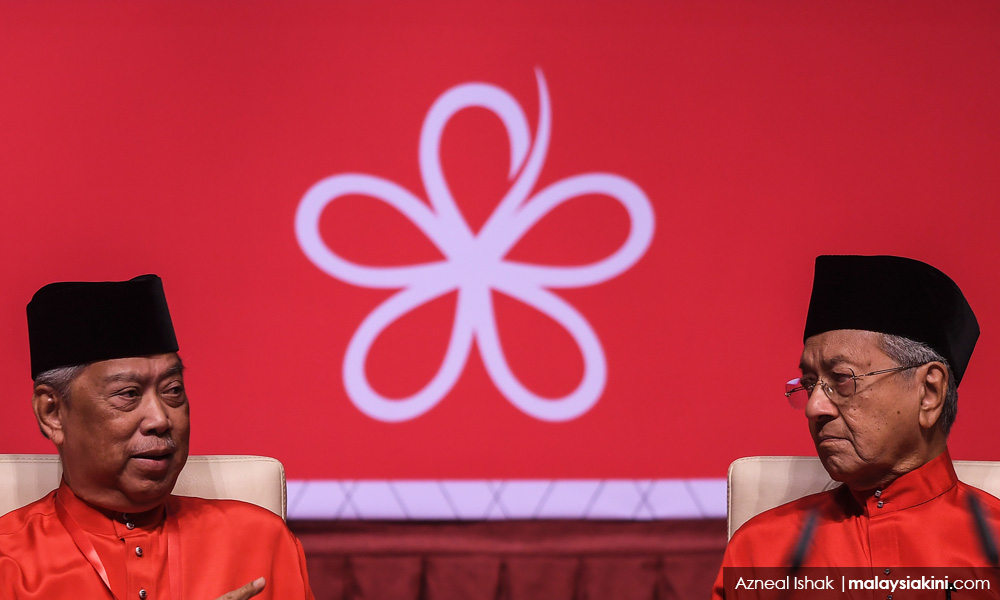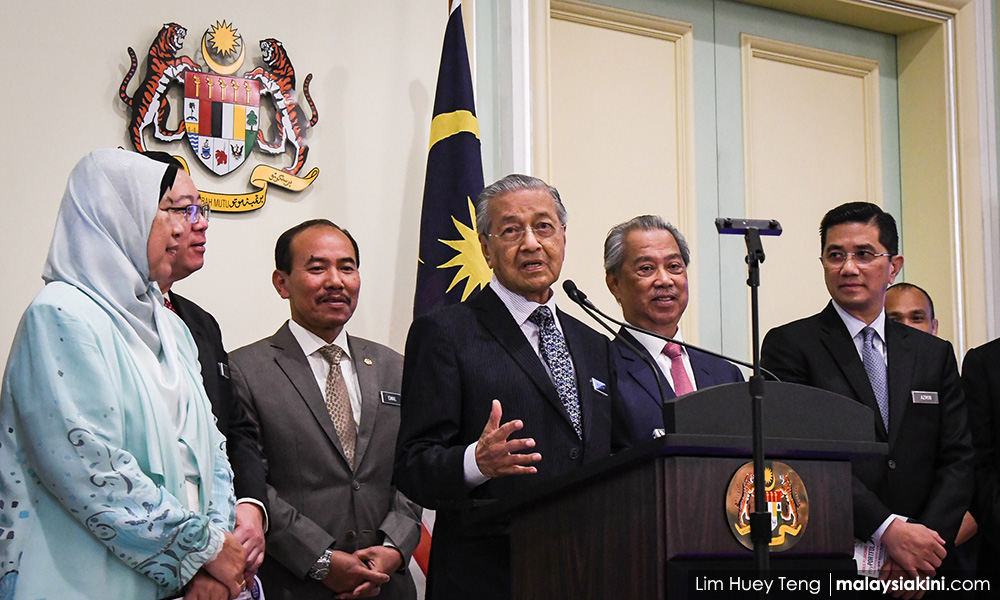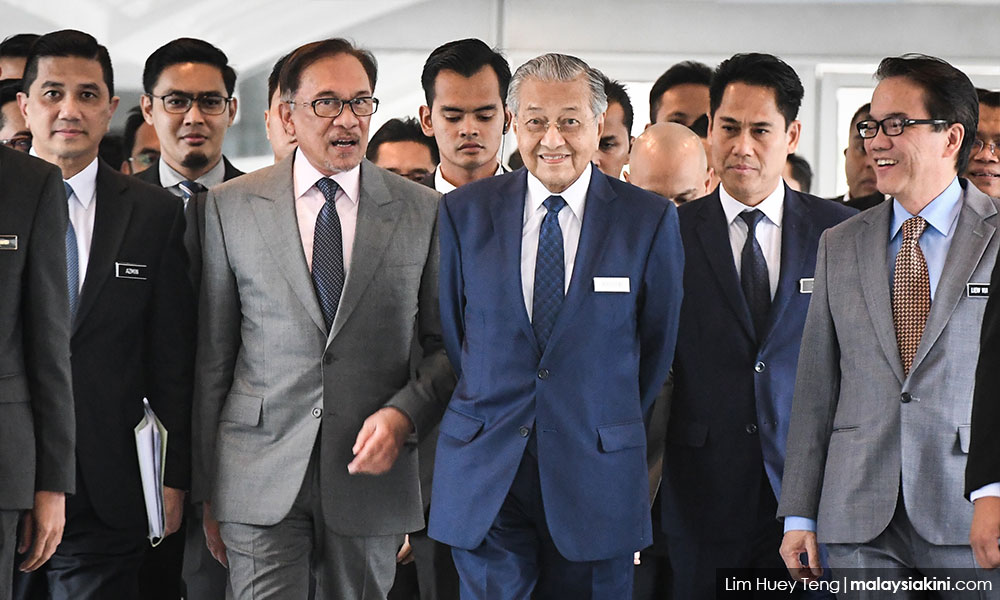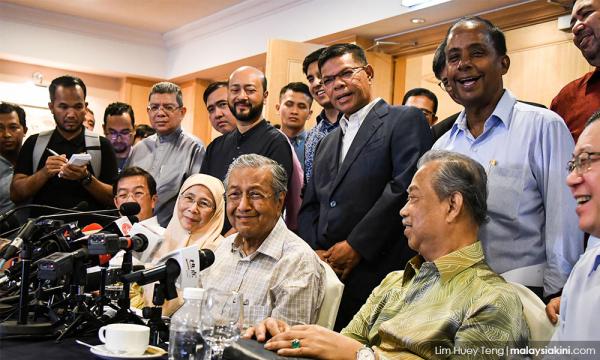COMMENT | Penang Deputy Chief Minister II P Ramasamy’s article critical of the lack of reforms has elicited a retort by Deputy Minister Ong Kian Ming, who seems mighty pleased with what the Pakatan Harapan coalition has achieved.
So, is this reformist coalition doing well on its promised reforms, and is well on course to transform the country to the much-yearned-for New Malaysia, or has it faltered on such promises to the electorate?
My observation is that the Harapan coalition has flopped as a reformist government; it has lost its way to the promised land.
Instead of sweeping reforms, we are seeing the stagnation of institutional reforms in almost all sectors: economy, education, civil service, judiciary, etc. Rampant racial discrimination in all these sectors, which has hampered progress, entrenched mediocrity and stifled talent in the past, has remained intact.
Racist ideology continues to reign supreme, thus shutting out any possible breakthrough in reforms in the economic and political fronts to rejuvenate the sluggish economy and bring forth national integration and genuine nation-building.
Amidst high hopes of a New Malaysia following Harapan’s stunning electoral victory, this disappointing turn of events came about due to the dominance of one man, who does not seem to have subscribed to the coalition’s reform ideals.
In breach of his agreement to lead a collective leadership through consensus building, Prime Minister Dr Mahathir Mohamad has gradually but surely enhanced his power to become an autocrat, a position reminiscent of his earlier infamous autocratic rule in the 80s and 90s, except that he is no more the head of the then dominant political party Umno, but the head of a relatively small component party PPBM (the only Malay-only party) in the Harapan coalition.

It is Mahathir’s continued embrace of Umno’s racist ideology and his propensity for ruthless political intrigues that have derailed the reform agenda and thrown the country into political uncertainty.
His ambiguity over the transition of power to prime minister designate and democracy icon Anwar Ibrahim is particularly damaging.
Stop-gap leader
Anwar is the leader of the reform movement known as Reformasi, which formed the backbone of the Pakatan Harapan alliance which captured power through the May 2018 election.
It goes without saying that Anwar would have led the last election campaign and become the prime minister if not for the fact that he was still serving a prison sentence right up to the time of election.
To fill this leadership gap, Mahathir was chosen to be the stop-gap leader to lead the election campaign and to later assume premiership as an interim PM, pending a royal pardon for Anwar to take over the premiership later.
Prior to election, Mahathir suggested that he would be premier for two years before passing the baton to Anwar, as he reckoned the legal procedure of securing a royal pardon would be time consuming.
But surprise, surprise! The royal pardon was granted only days after the election, thanks primarily to the strenuous effort put in by Anwar’s family.
Despite Anwar’s unexpectedly early release, the coalition had agreed with Mahathir to continue his proposed two-year interim tenancy as PM.
However, through Mahathir’s often ambiguous rhetoric and dubious acts, he has been widely and persistently perceived as lacking sincerity in handing over power to Anwar.
In fact, right from day one of Mahathir’s premiership, he showed his hand in dark political manoeuvring through his questionable appointment of key cabinet ministers, chosen unilaterally by him from component parties of the coalition consisting of PKR (the largest component party, headed by Anwar), DAP, PPBM and Amanah.

Mahathir’s choice of appointees, much against the wishes of the component parties, revealed to the shrewd observer a carefully planned strategy to induce intra-party and inter-party dissension to weaken Anwar’s position in his own party and to loosen the hitherto tight inter-party bond within the coalition.
Such split-and-rule strategy was obviously devised to facilitate his manoeuvre to assume autocratic control of the coalition and to enable him to deprive Anwar of his designated premiership.
Mahathir’s reluctance to hand over power to Anwar could also be easily discerned from his steadfast refusal to fix the handover timeline, ostensibly to avoid being made a lame duck PM once the date is announced. But such rationale can’t stand scrutiny.
Mahathir’s two-year term means that he would have to step down two years from assuming office in May 2018. What difference does it make whether he announces his handover date as April or May or June 2020, since the two-year period was agreed to? Unless, of course, he would like people to know that his refusal to name the date means that he might not want to honour the pledge.
It is the uncertainty on such an important issue that has given rise to undesirable speculation and rumours and fuelled dangerous political manoeuvres which could only get worse when the clock is ticking closer to May 2020.
Mounting tensions would increasingly distract the coalition from its main agenda to transform the country, and may even spark off open conflicts which could be devastating for this young coalition.

Economy hit
On the economic front, it has taken its toll, as important investors contemplating shifting part of their hi-tech production units in China to this part of the world as a result of the US-China trade conflicts, have put their consideration of Malaysia on hold pending clarity of its political future and the much talked about power transition.
Time and tide wait for no man. We might miss this golden opportunity to catch the prized outflows of these high-value investments if such an ill-conceived Mahathirist political play is allowed to be prolonged.
Our economy has suffered badly, due to Mahathir’s unfriendly diplomatic skirmishes with China and Singapore, the two potentially most important contributors to our economy in terms of investment and tourist arrivals.
Our continuing uncertain political future has also cast a cloud over domestic investors, resulting in a drastic drop in domestic investment.
These negative factors – including the lack of economic and political reforms – has only exacerbated a slowing economy, resulting in economic doldrums not seen in many years.
To avert further damage to all stakeholders, the leadership of individual component parties of Harapan must now assess the current status of the Harapan rule objectively and seriously, especially the role Mahathir is playing, and come up with rational decisions on what the coalition must do to steer it onto the Reformasi track as originally intended and pledged.
Continuing to muddle ahead by burying heads in the sand or procrastinating imperative remedial measures out of lack of moral courage will worsen Harapan’s political prospects and cause further agony to the nation.
KIM QUEK is the author of the banned book ‘The March to Putrajaya’, and best seller ‘Where to, Malaysia?’.


